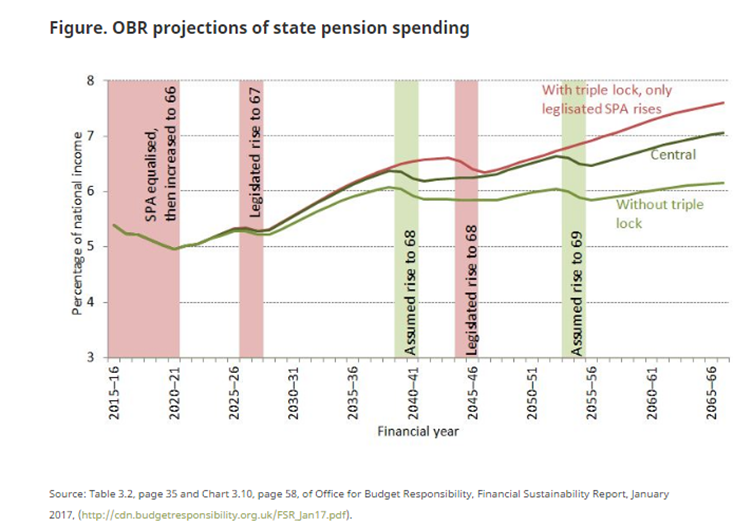Tom Selby, senior analyst at AJ Bell, looks at the history of the policy, its cost to Government and why all three major parties look set to ignore calls to ditch a valuable commitment to pensioners.
Why was the state pension triple-lock introduced?
“The Coalition Government, which introduced the triple-lock in 2010, was never clear about the precise aim of the policy. We knew it was designed to protect and increase the state pension, but we didn’t know by how much.
“This was deemed necessary because Margaret Thatcher’s decision to abolish the state pension earnings link in 1980 meant pensioner incomes had, for many years, increased at a derisory rate. In 1999, there was uproar when low inflation meant the basic state pension rose by just 75 pence.
“When Thatcher ditched the earnings link in 1980, the state pension was worth around 26% of average earnings - this had declined to just 16% of average earnings in 2008. But 7 years of triple-lock during a period where earnings have generally flatlined will have closed that gap dramatically.”
How much does the triple-lock cost?
“Clearly the future cost of the triple-lock depends on the level of average earnings and movements in inflation. Office for Budget Responsibility projections (see graph below) suggest retaining the triple-lock could cost £15bn more than earnings indexation by 2060.
“Furthermore, if inflation continues to rise in the short-term – as many are predicting – the cost of retaining the link will spiral.”
Where do the main parties stand?
“Labour leader Jeremy Corbyn has put the state pension triple-lock at the heart of his campaign to win over older voters. This is hardly surprising given pensioners - who had a huge hand in delivering Brexit - will probably have the deciding say in the General Election outcome too.
“Theresa May is also reportedly weighing up committing to the triple-lock, while the Liberal Democrats said in their 2015 manifesto it should be written into law. We are therefore approaching an odd political consensus to cement, at least for another Parliament, a policy that both the Work and Pensions Committee and an independent review of the State Pension said should be scrapped.
“The triple-lock is actually a rather crude way of boosting the state pension – it simply means the value will rise at random points in time, depending on what average earnings and inflation happen to be.
“If our political leaders believe the amount pensioners receive is too low, they should tell us what the ‘right’ level is and set a clear path to get there.”
